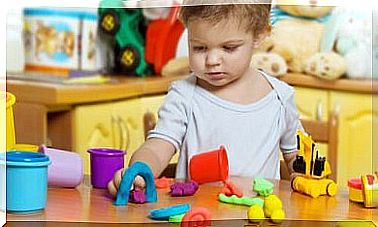Factors Affecting A Child’s School Success

Too often, below-average grades are automatically considered the sole cause of the child. In fact, how well a child performs in school is influenced by many internal and external factors, and poor test scores are not necessarily solely due to laziness, intellectual capacity, or lack of motivation, which are often cited as reasons for poor school performance. So what are the most common factors influencing a child’s school success?
The main factors influencing a child’s school success
- Child maturity level: Some children are more willing than others to start school. This is related to the individual development of each child. Over time, the child becomes accustomed to a new environment and a new rhythm of life.
- Child’s personality and mental state: It is easier for an emotionally balanced child to meet the demands of school and adapt to the school environment. The behavior of such a child is smooth, respectful and friendly. A child with anxiety, aggression, and depression has a harder time succeeding in school.
- Parents: A positive and respectful relationship between the child and the teacher is the key to good school success. The teacher’s ability to communicate information to students also plays an important role. Parents should avoid talking about the teacher in a negative tone when hearing the child, as this can lead to a decrease in the child’s respect for their teacher. In addition, the child may feel confused about the two greatest authorities in his or her life — his or her parent and teacher.
Secondary factors influencing a child’s school success
In addition to the above, many other factors also affect a child’s school success, although they play a smaller role than the former. First, a child’s schooling is influenced by his or her socioeconomic background. Unfortunately, inequality is still a major problem today, with a huge impact on people’s lives.

Children who receive more support and have better opportunities for nutrition, rest and learning do better in school. However, these factors are reversible, and many parents sacrifice a considerable amount for the benefit of their children. Many private organizations are also working to provide children with better education in countries in need.
A child’s school success is also affected by the community, regional or national education system and the pedagogical tools used by the school. The more and better resources a school has at its disposal, the easier the work of teachers will be and the better children will learn.
How to help a child go to school?
A child’s success in school can be supported by certain everyday things:
- Be present. Read with the child, Incorporate math into everyday situations and help the child with homework. This teaches the child routines, helps him or her better understand what he or she has learned, and motivates him or her to perform tasks properly and independently. By participating in school events and activities, you show your support to your child.
- Encourage, not pressure. Show the child that you trust his or her abilities and expect him or her to do his or her best. However, be careful not to put unnecessary pressure on him or too much burden to carry.
- Do not punish a child if schooling does not go well. If you find that a child is working in front of the school but the toil is not bearing fruit, do not get angry with the child or punish him. Talk to him calmly and help him find the right solutions to the situation.
- Do not use external rewards. Rewards can be an effective means of motivation, and it is permissible for a child to be reimbursed for the effort they see. However, rewarding should not be made a constantly recurring practice, as the child needs to understand that going to school is one of his or her responsibilities, and not going to school to get rewards, but for learning.
Lastly, it is good to remember that a child’s life should not revolve around school alone. If school success is the most important thing in life, a child can imagine that his or her parents are only interested in the child’s grades, not his or her feelings or potential difficulties. While schooling is important, it also includes time spent with family and friends, exercise, homework, creativity, and hobbies.









